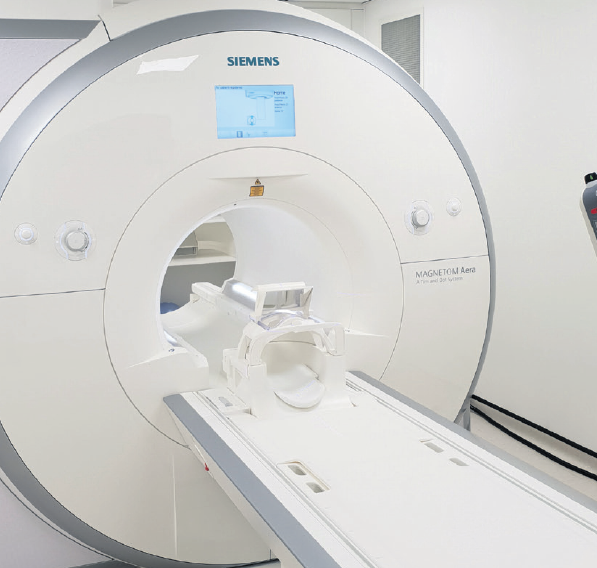- Patients
- Exploring cancer care
- Conditions we treat
- Ovarian cancer
Introduction
Ovarian cancer
Ovarian cancer treatment at GenesisCare
We are specialists in the latest techniques for treating all types of cancer, including ovarian cancer. We have teams of highly trained doctors who are experts in this disease. They work together to evaluate the latest, evidence-based approaches so we can offer these to every patient – without delay.

Treatment overview
Chapter 1
Treatment overview
Treatment for ovarian cancer may include surgery, chemotherapy, radiotherapy and potentially targeted therapy. The team will commonly be made up of a gynaecological oncologist (specialising in women's cancer surgery) and a medical oncologist (specialising in cancer drug treatments). We combine this with consultant-led integrative care, such as wellbeing therapies and psychological support, to help you achieve the best possible outcome. Our qualified physiotherapists and wellbeing consultants will carefully plan these therapies tailored to your needs by working with you and your consultant.
Around one in 50 women in the UK will develop ovarian cancer (cancer of the ovaries) in their lifetime, but early diagnosis and treatment can mean a positive outcome for many. We are the UK‘s leading specialist private cancer care provider. By choosing us, you can be reassured that your treatment will be managed by a team of experts working together and with you to decide a personalised care plan for the treatment of your cancer.
This is our commitment to offer world-class care to every patient with cancer.
How is ovarian cancer treated?
There are a number of options of treatment available for ovarian cancer at GenesisCare, such as:
- Surgery – removal of all cancerous tissue in the ovaries
- Chemotherapy – anti-cancer (cytotoxic) drugs that destroy the cancerous cells
- Radiotherapy – high-energy radiation beams which are targeted at the cancer cells
- Targeted therapy – a specialised group of drugs that attack or block certain processes in the cancer cells
Contact us
These web pages provide more information about ovarian cancer treatment at GenesisCare. If you would like to contact us in confidence, we’ll be happy to answer any of your questions.
Diagnostics
Chapter 2
Diagnostics
Ovarian cancer symptoms
Ovarian cancer doesn’t always cause symptoms and when it does the symptoms are very non-specific. Symptoms of ovarian cancer can include:
- Feeling very full when eating
- Fatigue
- Persistent pain or discomfort in the pelvis
- Abdominal pains
- Bloating
- A swollen tummy
- Needing to urinate more frequently
- Loss of appetite
- Unexplained weight loss
- Altered bowel habit
Other benign conditions commonly cause these symptoms, having one or more ovarian cancer associated symptoms doesn‘t mean you have ovarian cancer. If you‘re concerned you have symptoms of ovarian cancer, you should talk to your GP, who should refer you to an expert gynaecologist who specialises in the diagnosis of ovarian cancer.
Surgery
Chapter 3
Surgery
Surgery is commonly a key element of ovarian cancer treatment. The aim is to remove all visible cancerous tissue. This surgery may be very complex.
Our consultants have close relationships with expert surgeons from both local and nationally renowned hospitals. A multidisciplinary team (MDT) will work together with other cancer specialists to decide the best course of treatment for you. If your consultant recommends ovarian cancer surgery, this can be arranged conveniently at one of our partner hospitals. You can then continue your other treatments at GenesisCare.
There are various procedures for ovarian cancer surgery, and your surgeon will recommend the most appropriate procedure for you, depending on the size and stage (how advanced) of your tumour. Surgery is also an option for some advanced ovarian cancers, where the cancer has spread elsewhere in the body. Our oncologists will always discuss your case with our partnered surgeons.
Surgery side effects
No treatment is without side effects. Your doctor will explain these to you, together with the ways your treatment plan and supportive care can help manage or minimise these.

Drug treatments
Chapter 4
Drug treatments
At GenesisCare, we offer all drug therapies that can be used to treat and manage ovarian cancer, including many of the newest treatments. Depending on how these treatments are given to you, you may need to attend one of our private chemotherapy suites at our medical oncology centres, which are staffed by our specialist nurses. Our compassionate nursing teams are available 24/7 on a dedicated on-call telephone service and they can answer any queries during your treatment. They'll be able to provide advice about side effects or symptoms and help arrange appropriate medical care when needed.
Our centres have all received the Macmillan Quality Environment Mark to reflect the quality of care we provide for people living with cancer.
There are different types of drug treatments, also called systemic anti-cancer therapies. Our expert teams continually review and assess new treatments to make these available to GenesisCare patients as early as possible.
Chemotherapy for ovarian cancer
Chemotherapy uses cytotoxic (anti-cancer) drugs to destroy cancer cells.
It may be recommended before surgery (Neo-adjuvant chemotherapy) to reduce the amount of cancer tissue, with the aim of optimising surgical clearance of the cancer tissue, while minimising side effects of the surgery. Alternatively, it may be given after initial or primary surgery to treat any remaining cancerous cells.
In some cases, chemotherapy may be recommended on its own to treat ovarian cancer if an effective surgical procedure isn’t possible, or in cases when ovarian cancer has come back or spread after initial treatment.
Targeted therapy for ovarian cancer
Targeted (also called biological) therapies are a specialised group of drugs that are designed to attack or block specific processes in cancer cells that tumours depend on to survive and grow. There are several different types of targeted therapy for advanced ovarian cancer and your doctor will recommend the most suitable for you depending on the specific genetic make–up of your cancer and your previous treatments.
Palliative care
If your cancer is widespread to other parts of the body, it‘s called advanced or metastatic ovarian cancer. At GenesisCare, you can receive palliative drug treatment for advanced ovarian cancer, to reduce the size and progress of your cancer and ease any symptoms.
Personalised medicine
For some advanced cancers we use specialist tests, such as liquid biopsy or genomic testing, to understand the genetic make-up of cancer cells. This helps us to identify which drugs are available to work against the particular genetic mutations in a cancer, allowing us to start effective treatment without delay.
We are proud to have Clinical Trial Facilities at GenesisCare, which allow our patients to access clinical trials evaluating novel and the newest treatments for ovarian cancer. Your oncologist will discuss the possibility of enrolling you on an ongoing trial. If we can‘t offer a clinical trial within one of our sites, we‘ll collaborate with a partnered provider if your oncologist thinks a particular drug trial may be of benefit for you. Our focus is always patient–centred, giving you the best possible choices of care.
Drug treatment side effects
No treatment is without side effects. Your doctor will explain these to you depending on your drug treatment, together with the ways your treatment plan and supportive care can help to manage or minimise these.
Radiotherapy
Chapter 5
Radiotherapy
Radiotherapy uses targeted, high-energy radiation beams to destroy cancer cells. It's not a common ovarian cancer treatment but it can be used after chemotherapy and or surgery to destroy localised active cancerous tissue.
At GenesisCare, we are the leading private provider of radiotherapy in the UK and offer world-class care in our state-of-the-art facilities. Our latest-generation radiotherapy machines (called linacs) deliver highly targeted radiation beams that are designed to be effective while minimising the radiation dose to healthy tissues.
Your treatment will be governed by our expert multidisciplinary teams (MDTs), consisting of oncologists, radiotherapists and medical physicists. They'll work together to ensure that you receive only the best possible care.
Radiotherapy techniques for ovarian cancer
Volumetric modulated arc therapy (VMAT) is a modern radiotherapy technique that directs beams of radiation in an arc across the treatment area. Together with surface-guided radiotherapy (SGRT), it‘s possible to precisely target areas of cancer, adjusting the beam and intensity of the radiation dose to allow for movements in the body and avoid healthy tissues. Side effects of radiotherapy occur when healthy tissues receive radiation, so using this technique helps to limit the dose to tissues and organs surrounding the tumour. At GenesisCare, we offer VMAT wherever possible because it is widely recognised to be the highest standard of care currently available for patients needing this type of radiotherapy.
We also offer palliative VMAT radiotherapy for those living with advanced ovarian cancer, where it has spread elsewhere in the body, to improve pain and increase mobility. We deliver this through standard radiotherapy techniques or stereotactic ablative radiotherapy (SABR), which is the most advanced radiotherapy in the world. SABR has been shown to improve patients’ survival and quality of life with secondary cancer that has spread. We understand that fast access to supportive care is paramount and we ensure that we provide radiotherapy within five to seven days from the decision to treat.
Side effects of radiotherapy
No treatment is without side effects. Your doctor will explain these to you before you start your course of radiotherapy, together with the ways your treatment plan and supportive care can help manage or minimise these.

Integrative care
Chapter 6
Integrative care
At GenesisCare, we do more than just treat your cancer. As part of our unique and integrative approach to cancer care, you can expect the best possible care and a personalised treatment plan that includes access to life-changing therapies which are proven to improve cancer-related outcomes. These therapies will be tailored to you to help you manage and cope with your cancer, as well as the specific side effects of treatment.
Exercise medicine
A personalised programme of carefully planned and supported physical activity has been shown to improve outcomes for cancer patients by enhancing their quality of life and limiting the impact of cancer and its treatment, such as improving your strength and reducing fatigue. One of our physiotherapists specialising in exercise for people living with cancer will provide a 12-week programme tailored to you, supported by our dedicated GenesisCare Exercise Medicine app. They‘ll work closely with you to monitor changes in your health and support you throughout the programme to help you get the best results. This is available at selected GenesisCare centres.
Wellbeing
We also offer a wellbeing and holistic therapies expert who will discuss various therapy options for you, including counselling, acupuncture, massage and reflexology through our unique partnership with the Penny Brohn UK charity. This service is available to all ovarian cancer patients at any of our 14 UK centres.

Read next

Doctors
Our doctors
GenesisCare works with many leading and experienced cancer doctors who share our commitment to providing excellent patient care

Centres
Our centres
With 440 centres across the world, we're continuing to diagnose and treat without delay, bringing specialist care closer to our patients in the UK, Spain, Australia and the US.

Cancer care
Exploring cancer care
We are the UK’s leading private provider of advanced radiotherapy and cancer care. We offer fast access to the latest technology and treatments that has been proven to make a difference.

Cancer care
How can we help?
Accessing world-class cancer care is easier than you think. Follow these easy steps to get treatment, tests and scans, or a second opinion at GenesisCare, and find out the different ways of funding your cancer care.

Patient support
Patient stories
We believe patients can be our teachers and trusted advisers, benefiting from their unique experiences.